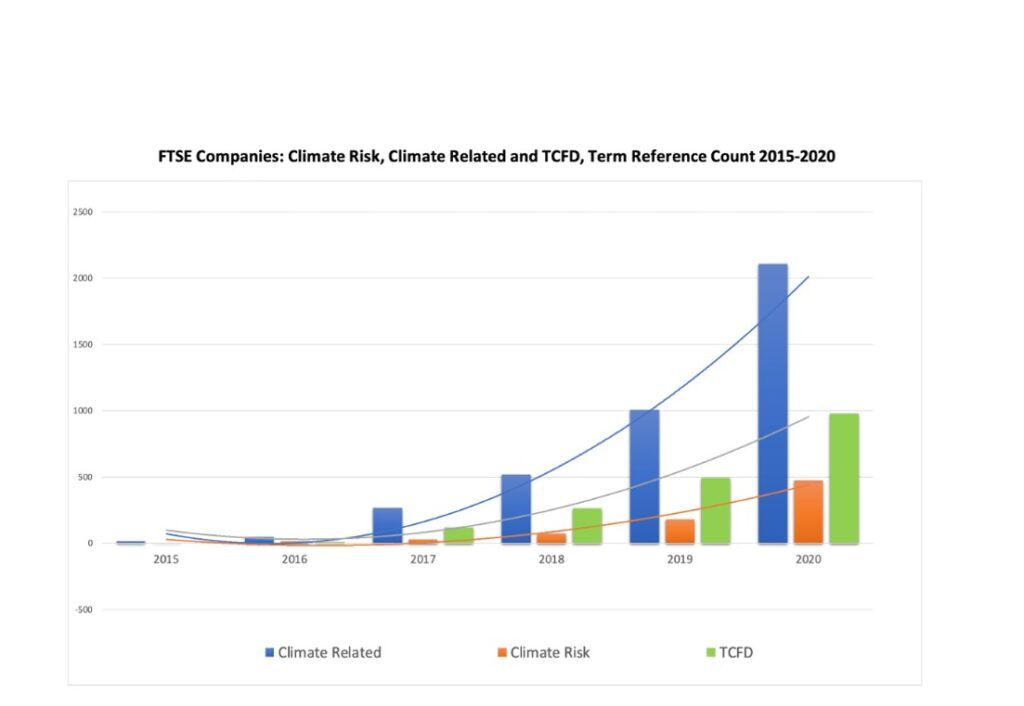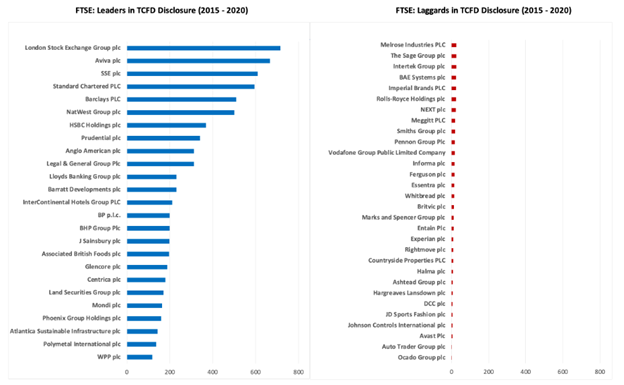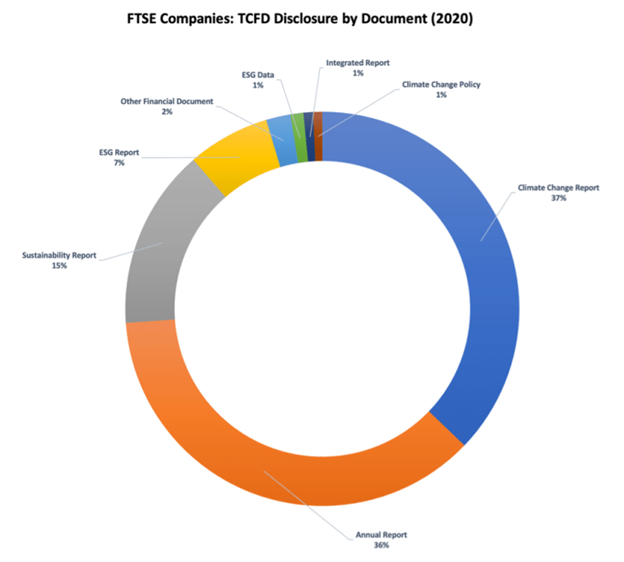TCFD: Task Force on Climate-related Financial Disclosure
One could argue that this four-letter acronym is the start of the green revolution for the corporate reporting world. With TCFD reporting now mandatory from 6 April 2022 for over 1,300 large corporations with >500 employees and >£500m in annual turnover, the UK is the first of the G20 to make it law, with others set to follow.
One could also argue that the regulatory burden of disclosure and reporting is going to cause a huge amount of pain. Not just for the companies required to report, but every investor required to analyse the mountain of disclosure documents coming their way, in order to substantiate their investment decisions.
The TCFD was established in 2015 and finalised in 2017 to drive the reporting of climate-related financial information in publicly available Annual Reports. Widely applicable across all sectors and jurisdictions, disclosures are around four core pillars that demand oversight of climate risk at every level of business: governance, strategy, risk management, and metrics and targets.
There is no question that the merits of TCFD are going to change the way companies operate and report, and will certainly change the way investors evaluate the companies that they buy into. The near-term pain and overhead of the reporting requirement will also hopefully accelerate corporate awareness on their impact on climate and, over time, we all start to see and feel the benefits of a recovering environment.
The big question is: how many of the major FTSE companies are prepared for the disclosure task ahead of them or risk falling foul of regulation? What’s telling is to see how long a company has been talking about TCFD, and where they publish their disclosures. The point here is that TCFD requires significant lead-in time to implement and requires that climate risk be addressed in the fundamentals of the Annual Report.
What does the data say?
Using the Insig.AI database of corporate ESG and financial documents, the goal was to identify trends around TCFD disclosure over time and across report types. The approach was to use a keyword and phrase search across the entire database on: ‘TCFD‘, ‘climate related’ and ‘climate risk’.
Summary observations
Who was first to start referencing TCFD? Aviva, Barclays, BHP and LSEG were the first FTSE companies to make reference to TCFD back in 2016, before the TCFD recommendations were even finalised. This indicates foresight and these companies have continued to be leaders in TCFD disclosure over the past five years.
Document types included: annual report, integrated report, sustainability/ESG report, climate change report, climate change policy, financial document, and ESG data.
References Over Time
FTSE companies have been actively referencing ‘climate related’ since 2017 and the trend has continued to grow year on year. Reference to ‘climate risk‘ only started to gain traction in 2020. TCFD references have doubled year on year since 2017.

Leaders and Laggards
Analysing combined TCFD relevant disclosures over this same period, there are clear and consistent leaders. At the other end of the spectrum, there is a stark difference in level of disclosure. It raises some questions about the level of commitment and readiness for TCFD reporting now the April deadline is upon us. Whilst the ‘materiality’ of climate change risk and impact does vary between sectors, which means some industries would start with more established reporting, a principle of the TCFD is that climate change is a risk to all businesses.

Disclosure by Document Type
Taking 2020 as a snapshot of where TCFD disclosures are found across reports, annual and climate change reports make up just over a third each. 22% are found in sustainability and ESG reports. Companies not yet reporting to the TCFD in their annual reports will be required to start in the 2022-23 reporting cycle.

Disclosure timebomb
Implementing TCFD is a razor-hot topic for UK businesses and the global investors that support them. It will hold boards to account for the role they play in managing their organisation’s response to the climate crisis.
Progress has certainly been made during the five year implementation period, particularly among financials, with some big names demonstrating a much greater level of preparedness than other sectors. But with the new era of company reporting just days away, a step change is still required across the lion’s share of the FTSE 100 to meet the new disclosure requirement.
Many companies are bound to fall short of the reporting requirements around climate change, due to a myriad of reasons, be this the relative complexity of the new obligations, or a lack of resource. However, once the dust has settled around the legislation, it’ll be compelling to see which companies move from ‘laggard’ to ‘leader’ and vice versa, amid intensifying investor, analyst, and media scrutiny.








